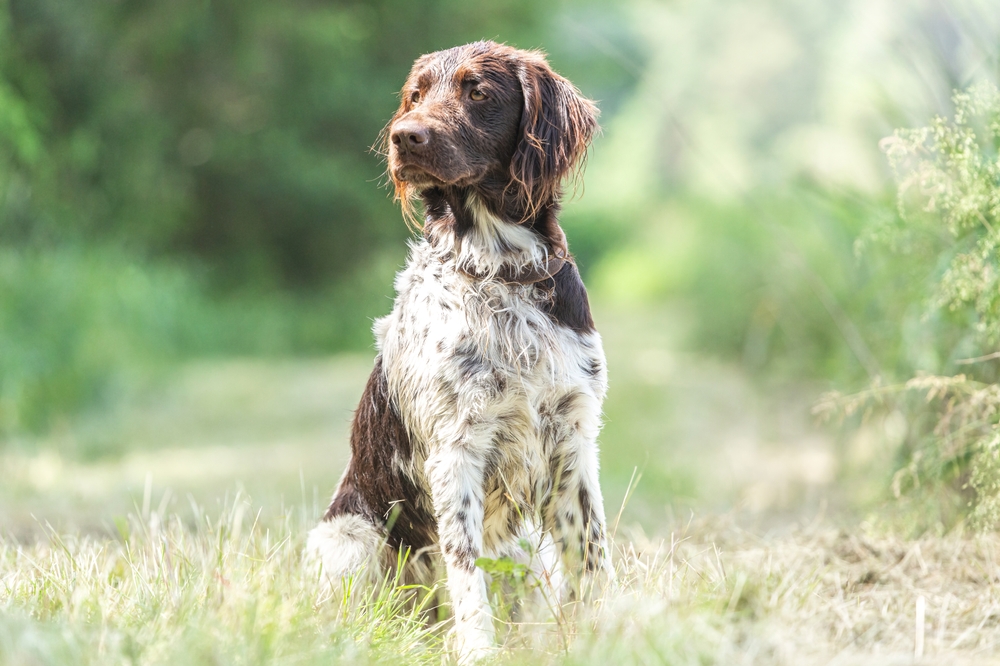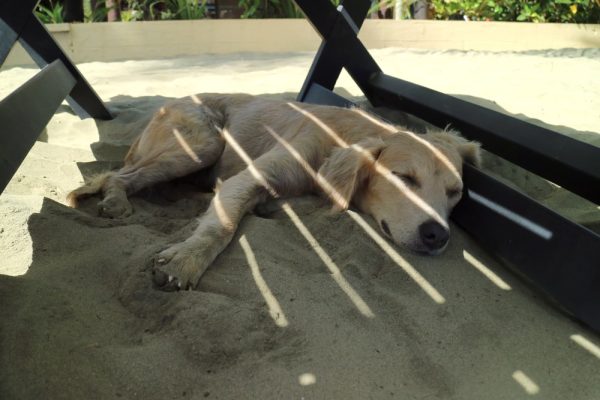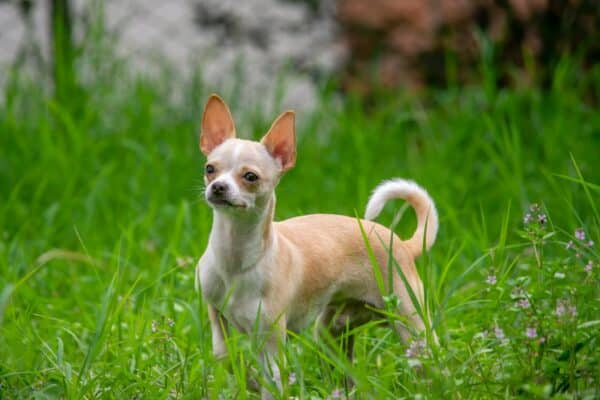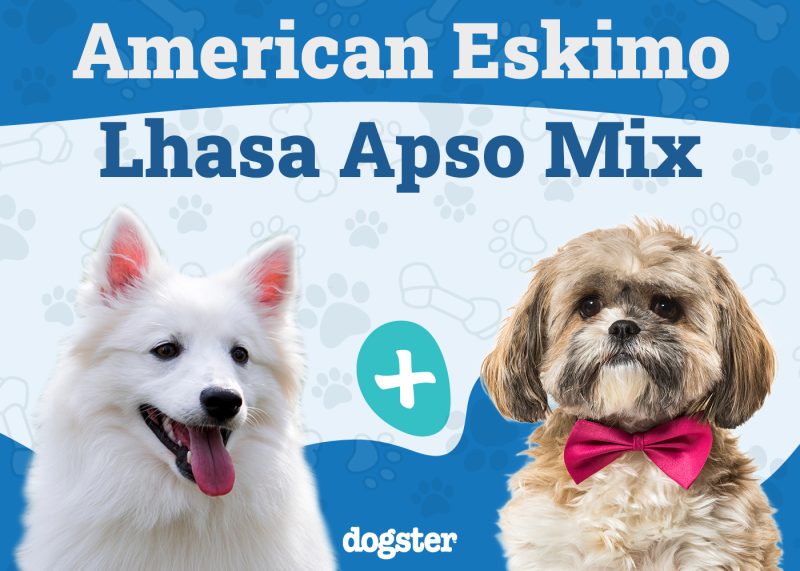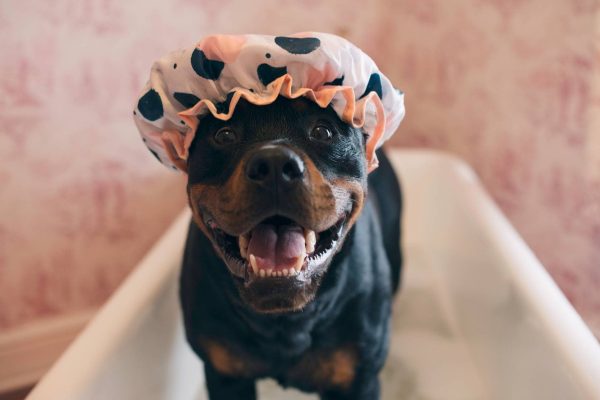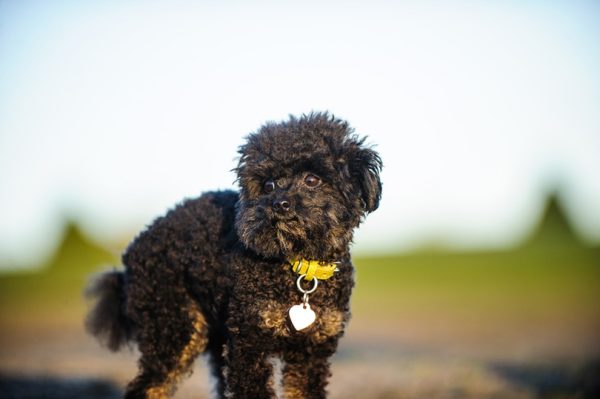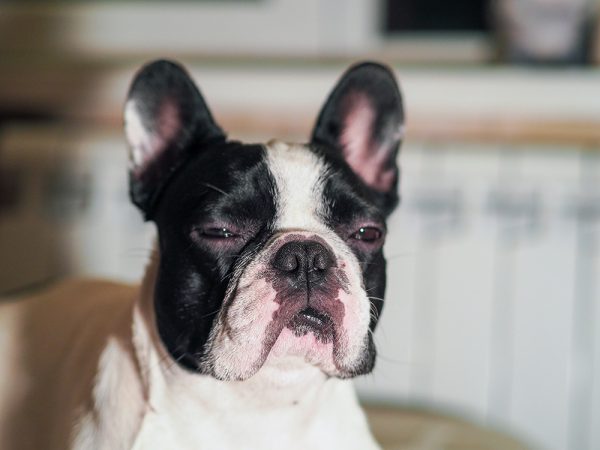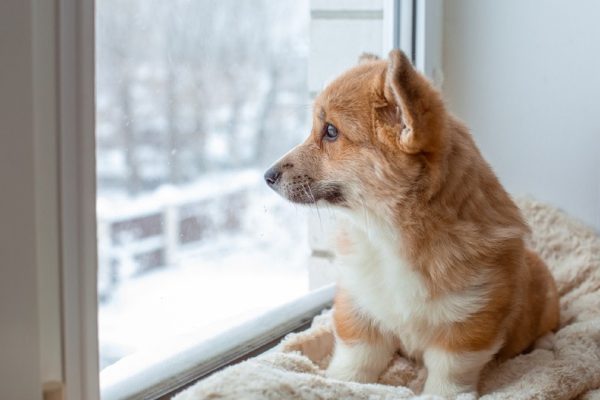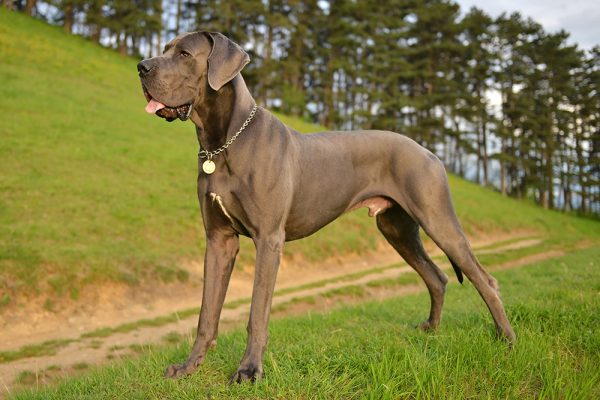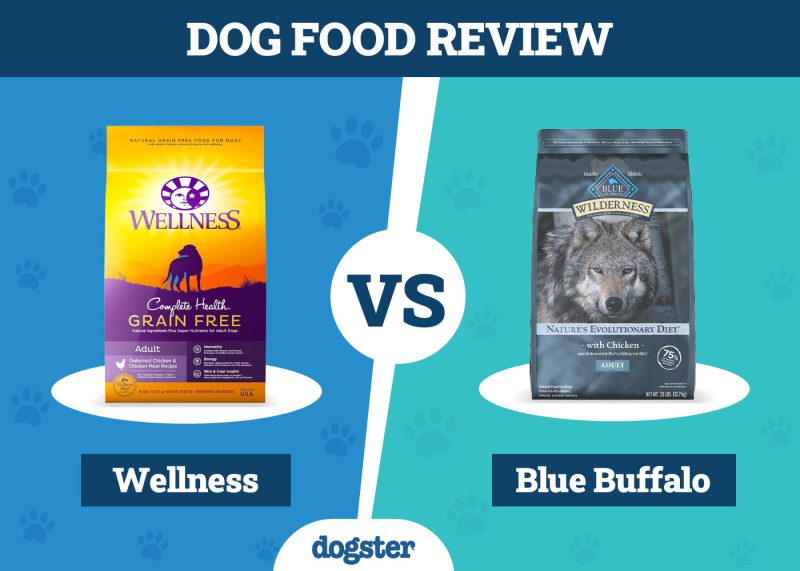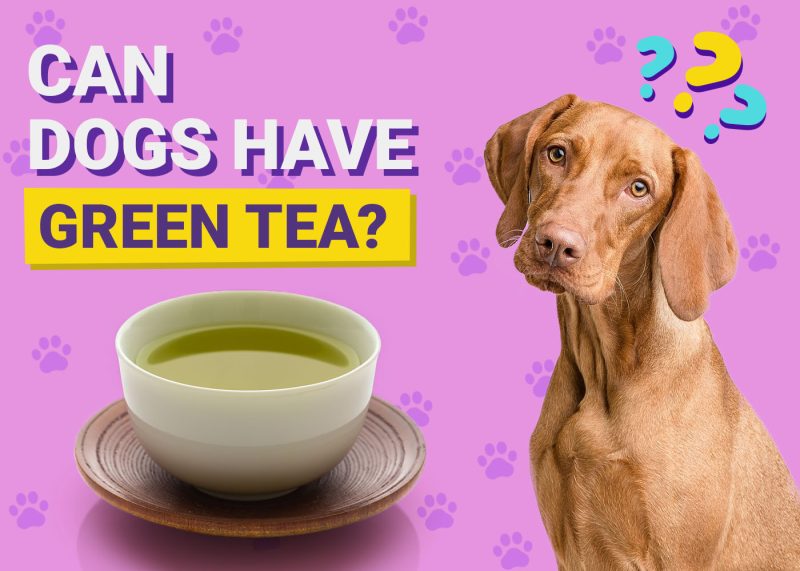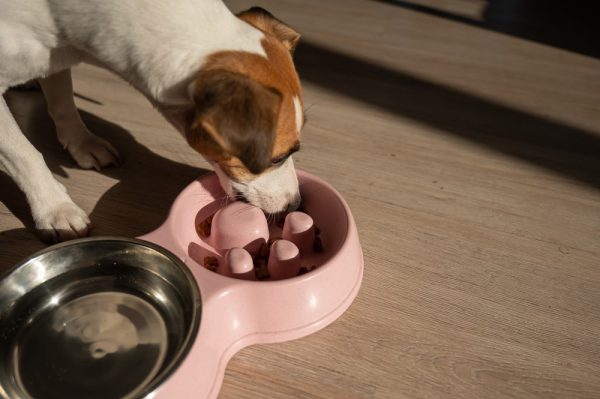In this article
View 8 More +The Small Munsterlander is a versatile German hunting dog that is becoming more popular due to how affectionate they are with family members and their high intelligence. If you have a chance to get one of these dogs but would like to know more about them first, read on to learn about their appearance, temperament, and origin.
Breed Overview
Height:
20.5–21 inches
Weight:
40–60 pounds
Lifespan:
12–14 years
Colors:
Brown and white, brown roan
Suitable for:
Active individuals or families, hunters, experienced dog owners, active seniors
Temperament:
Friendly, loyal, intelligent
The Small Munsterlander is known for their intelligence, loyalty, and friendliness. They got their start in Germany and have excellent tracking abilities. Nowadays, they make wonderful pets that often enjoy sitting near—or on—their owners. They are outgoing and usually friendly toward other people and pets, and they especially love playing with children. They have a moderately long, broad head, expressive almond-shaped eyes, high-set ears that hang close to the head, and a feathered tail.
Small Munsterlander Characteristics

Small Munsterlander Puppies
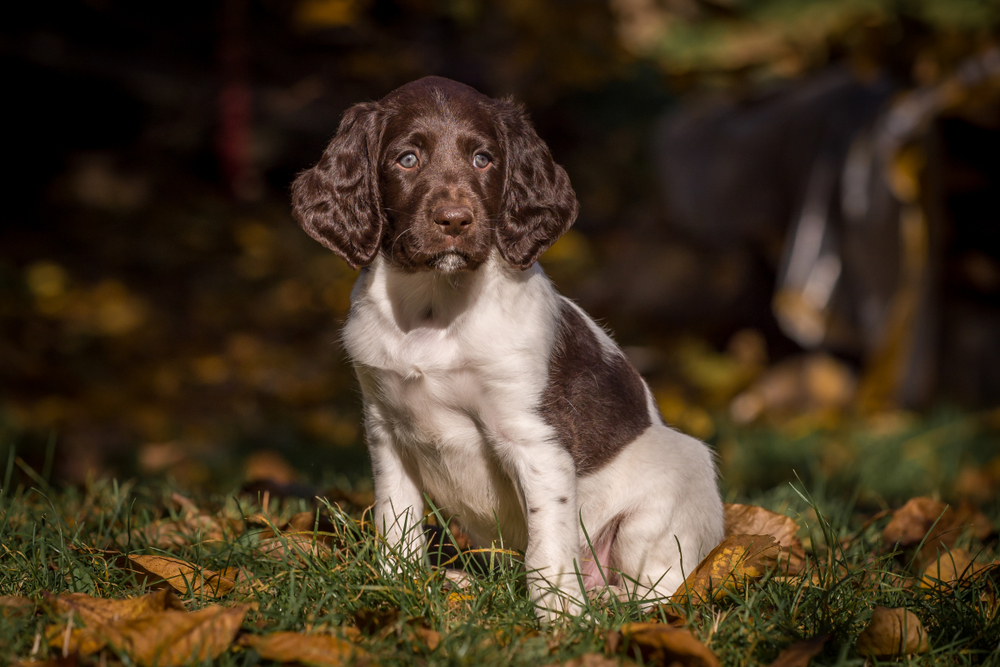
As puppies, Small Munsterlanders are lively, curious, and affectionate. They have a great deal of energy and love to explore their surroundings, so they will need plenty of supervision, and it will be important to puppy-proof your home. You will also want to get them started in a grooming, training, and exercise routine that will last into adulthood, making those things easier. You want to let them spend as much time as possible getting to know other people, places, and animals so they feel more comfortable around those things as adults.
Finding a Small Munsterlander puppy can sometimes be a bit challenging, as they are not as common as some other breeds. However, asking around at your local veterinarians’ offices, animal shelters, and pet stores can help you find one in your area. You can also check out online services that may have one for sale. No matter which breeder you choose, ensure that they put the health of their dogs ahead of profits.
Small Munsterlander Origin & History
The Small Munsterlander is originally from Munster, Germany, where people have been using them as hunting dogs for several centuries. They likely share their ancestry with other German hunting dogs, including the Large Munsterlander, German Longhaired Pointer, and various spaniel breeds. They are versatile and effective hunters capable of pointing, flushing, and retrieving game birds and small game.
The Club for Small Munsterlander Pointing Dogs got started on March 17, 1912, and the Small Munsterlander Club of America got its start in 1993.

Temperament & Intelligence of the Small Munsterlander 🧠
The Small Munsterlander has a well-rounded temperament and impressive intelligence, making them a highly desirable breed for hunting and family companionship. They form strong bonds with their owners, and many describe them as devoted companions. They thrive on human interaction and are happiest when included in all aspects of family life. They are extremely intelligent and capable problem solvers with an eager-to-please attitude that makes them fun to teach a wide variety of tricks.
Are These Dogs Good for Families? 🏡
Yes, Small Munsterlanders can be excellent companions for families. Their friendly, affectionate nature and gentle disposition make them well-suited for households with children. They form strong bonds with all family members and are patient, tolerant, and playful. They enjoy participating in outdoor activities like hiking, running, and playing fetch, making them ideal companions for those who enjoy spending time outdoors. However, their high energy makes them better suited for active families with time to spend.
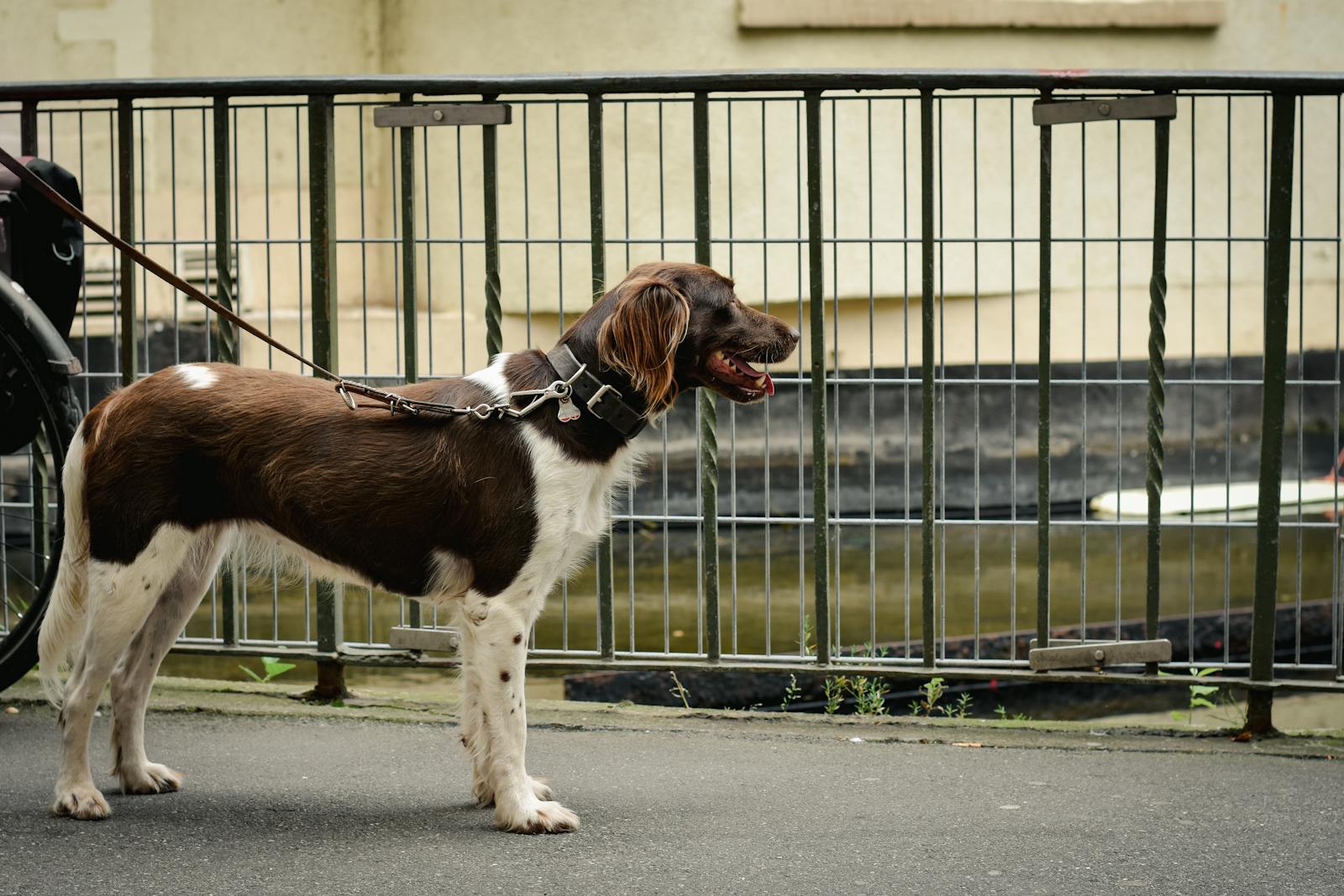
Does This Breed Get Along With Other Pets? 🐶 😽
Yes, Small Munsterlanders generally get along well with other pets, especially when properly socialized from a young age. They are often friendly and outgoing with other dogs and cats, but their strong prey drive can cause them to chase after smaller animals, such as rodents and birds, without proper training.

Things to Know When Owning a Small Munsterlander
Food & Diet Requirements 🦴
The Small Munsterlander is a high-energy dog that will require high-quality dog food that lists real meat like chicken or turkey as the first ingredient. Avoid brands that use artificial colorings or preservatives, which can be harmful to your pet or lead to an allergic reaction. Follow the portioning recommendations on the package carefully to reduce the risk of your pet gaining weight, and limit their treats to no more than 10% of their daily caloric intake.
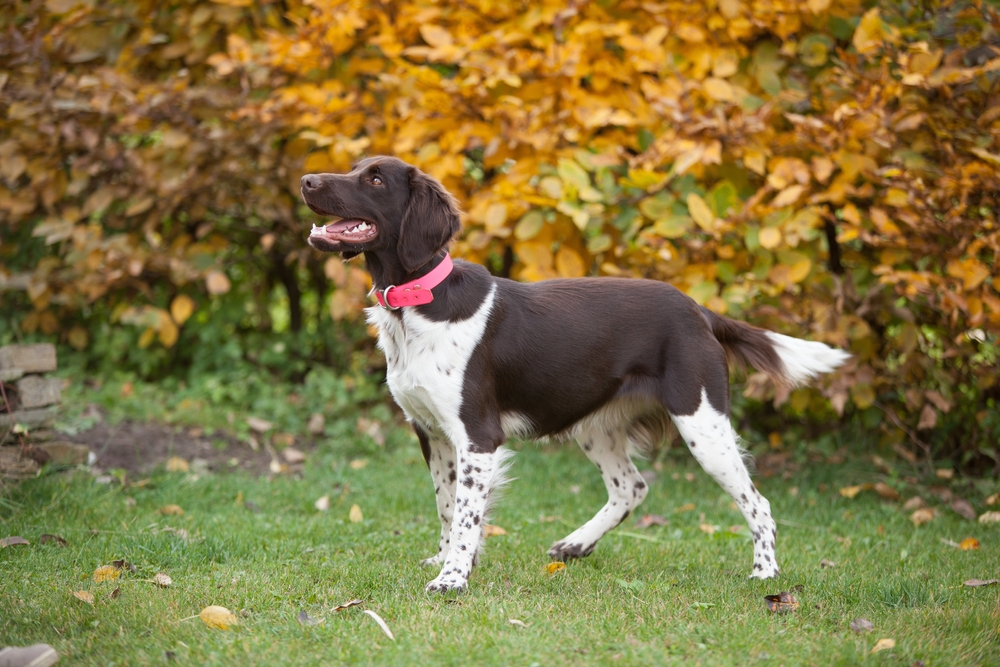
Exercise 🐕
The Small Munsterlander is an energetic and athletic breed that requires a considerable amount of exercise to stay happy, healthy, and well-behaved. On average, they need at least 60–90 minutes of physical activity each day, which can include long walks, running, outdoor playtime, and swimming.
Training 🦮
Small Munsterlanders have an eager-to-please attitude that can make them great fun to train, even for beginners. Starting to hold scheduled training sessions when they are still puppies is critical to getting them into a routine that carries into adulthood. Keep the sessions short, but consistent and provide positive reinforcement in the form of praise, treats, and pets to help keep them interested and focused.
Grooming ✂️
The Small Munsterlander has moderate grooming needs. You will need to brush their dense, waterproof coat several times each week to remove loose fur, knots, and tangles. While they usually stay quite clean, an occasional bath with a dog-specific shampoo can help bring back their shine and reduce odor. You will also need to clip their nails if you hear them clicking on the floor when they walk and check the ears regularly for wax buildup and signs of infection. It’s also important to manually brush your dog’s teeth as often as possible with a pet-specific toothpaste to slow the progression of dental disease.
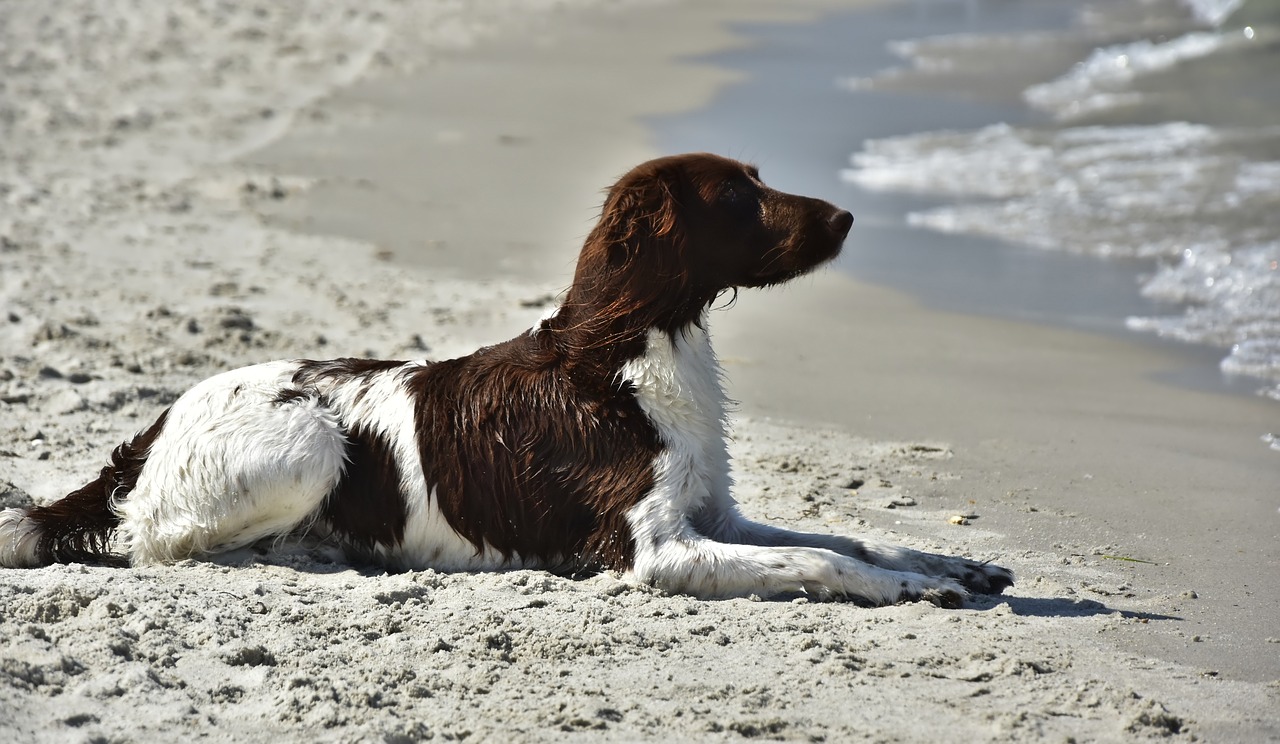
Health and Conditions ❤️
- Entropion
- Ear infections
- Hip dysplasia
- Progressive retinal atrophy
- Hypothyroidism
Minor Conditions:
- Entropion is a condition that causes the eyelid of your dog to roll inward, which enables the hair to rub against the eyeball, causing irritation, ulcers, and perforation. Surgery is often required to fix it.
- Ear infections: Due to their floppy ears, Small Munsterlanders may be prone to ear infections, especially if their ears are not kept clean and dry. Floppy ears can hold moisture, which enables bacteria to grow, so it’s important to check them frequently and clean them when needed, especially after swimming.
Serious Conditions:
- Hip dysplasia is a condition that affects many dogs, including the Small Munsterlander, and is the result of the hip joint not forming properly, causing it to wear down prematurely, leading to difficulty getting up from a resting position and even lameness. Weight management, medication, and sometimes surgery can help your dog manage the condition, but there is no cure.
- Progressive retinal atrophy is a condition that causes the deterioration of the photoreceptor cells in your dog’s eye, leading to difficulty seeing at night and eventual blindness. Proper research when selecting a breeder can help minimize the risk of your dog having it.
- Hypothyroidism is a condition that affects your dog’s metabolism and can cause them to gain weight quickly without an increase in eating. You may also notice a dull, thinning coat and an increased dark pigment on the skin. Medication can help your dog manage this incurable disease.
Male vs. Female
The male Small Munsterlander will likely be slightly larger than the female, but it would be hard to tell unless they were standing next to each other. The males might also be slightly more aggressive, while the females are easier to train. However, individual personality will have a bigger impact on these things than sex.

3 Little-Known Facts About the Small Munsterlander
1. Excellent Swimmer
The Small Munsterlander has webbed feet and a water-repellent coat, facilitating their love of water.
2. Relatively Rare
Despite their exceptional hunting abilities and gentle temperament, Small Munsterlanders aren’t well known outside of their native Germany.
3. Unique Coat
Small Munsterlander puppies are born with a dark, chocolate-brown coat that gradually lightens as they mature. Over time, the brown areas develop ticking, giving the coat a speckled appearance that is a characteristic trait of the breed.

Final Thoughts
Although relatively rare, the Small Munsterlander can make a wonderful pet for any home. They are friendly, playful, and active, and they can be especially fun at the beach, where their high energy and amazing swimming abilities will keep everyone entertained. They are easy to train, even for beginners, and are patient and tolerant of children. They even get along with other pets. The only downsides might be their need for 60–90 minutes of exercise each day and their moderate grooming needs.
Featured Image Credit: Annabell Gsoedl, Shutterstock
